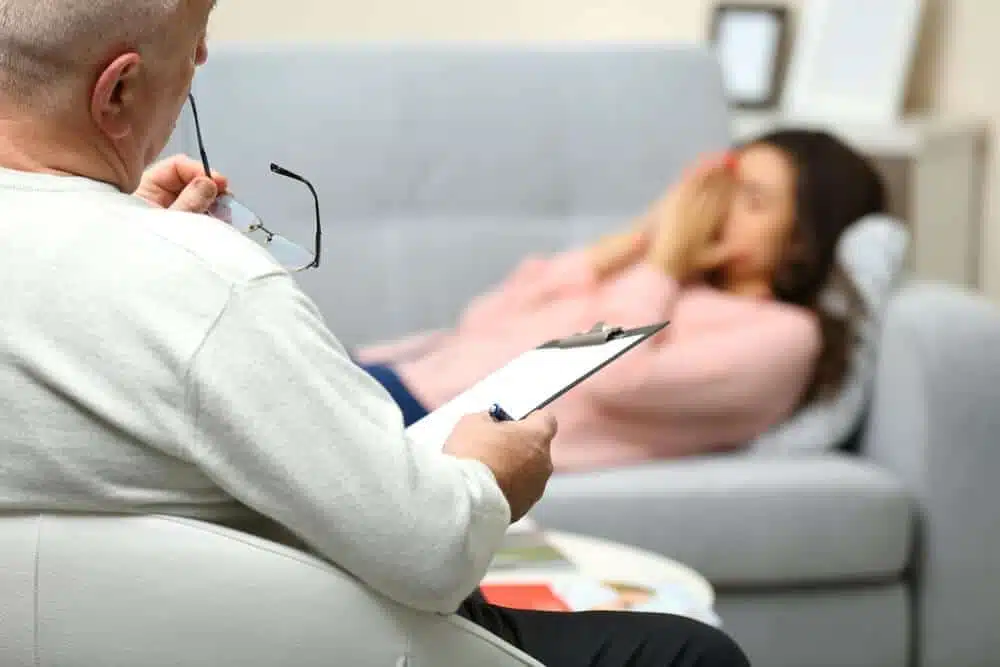
Anxiety Treatment – When Your Teen Needs Help
- Anxiety
- September 12,2024
- BY Beachside Teen Staff
- 0 Comments
If you’re asking the question, “Does my teen have anxiety?” the answer is yes. The teenage years are times of an enormous amount of change, and whether good or bad, change always means stress. The changes, such as a new level of financial responsibility, physical changes related to puberty, and an eventual move out of the house, are some of the biggest that people experience throughout the lifespan — condensed into a few short years. The stress caused by growing out of childhood and experiencing adulthood is when teens need anxiety treatment the most.
Some level of anxiety is to be expected at this time, and often with good support, teens can overcome the stressors and have a good quality of life. But this isn’t always the case. Because the level of stress experienced by teens–which the American Psychological Association suggests may even exceed that of adults–it’s often difficult to discern between adolescents with regular stress and those with disordered anxiety. (Bethune, 2014).
Yet it is crucial to find out if your teenager’s anxiety exceeds what he or she can tackle without psychological help; the teen years are challenging for teenagers without an anxiety disorder, but for those with a disorder, life can quickly become overwhelming. Unfortunately, many teenagers do experience anxiety on the disordered level.
Statistics
According to a Harvard Medical School study, approximately 30.1% of adolescents in the US have an anxiety disorder; of these, an estimated 8.3% experience severe impairment (National Institute of Mental Health, 2017). This means that one in three teens has an anxiety disorder and one nine teens experience severe impairment. In all anxiety disorders, impairment exists in school, relationships, and ability to cope with everyday events. Despite the negative effects anxiety disorders have on the lives of adolescents suffering from them, only 18% of adolescents with anxiety seek treatment for their condition (Siegel, 2012).
This percentage is tragic because anxiety is very treatable; evidence-based treatments such as Cognitive Behavioral Therapy significantly reduce the anxiety levels of clients who receive it, especially in combination with medical intervention (Siegel, 2012). To help you determine if your teen would benefit from treatment, this guide will give you some specific signs to look for that may signal that your teenager needs psychological help.
What Does an Anxiety Disorder Look Like?
The DSM-5 describes anxiety disorders as an excess of “fear and anxiety.” The manual differentiates between fear and anxiety in this way: fear relates to present threats, while anxiety is directed toward the future (American Psychiatric Association, 2013). Although anxiety disorders consist of three basic groups, this article will specifically focus on Generalized Anxiety Disorder as the symptoms of the disorder are easiest to confuse with simple stress.
Generalized Anxiety Disorder
According to the National Institute of Mental Health, Generalized Anxiety Disorder is characterized by “excessive anxiety or worry… about a number of things such as personal health, work, social interactions, and everyday routine life circumstances (National Institute of Mental Health). The disorder is also often accompanied by difficulty sleeping and concentrating, fatigue, irritability, muscle tension, and restlessness (American Psychiatric Association, 2013). In order for the situation to be diagnosed with the disorder, these symptoms must be present almost every day for at least six months and cause significant difficulties in everyday life. The symptoms of this disorder present themselves in a slightly different way in teens versus adults (Seigel, Rebecca S., 2011).
In adolescents, the symptoms of the disorder tend to manifest themselves in physical symptoms such as nausea, stomach aches, reflux, headaches, and other symptoms. Additionally, deviant behavior can also accompany anxiety, as well as school avoidance and overall reluctance to engage in activities. The mixture of these symptoms can lead adolescents with Generalized Anxiety Disorder to perform poorly in school, to have difficulty creating meaningful connections with others, to struggle with uncomfortable and painful physical symptoms. The disorder leads to diminished quality of life compared to those without the disorder.
Anxiety Treatment Available at Beachside Teen Treatment Center
Beachside Teen Treatment Center, a state of the art facility in beautiful Malibu, California, is dedicated to providing a restful environment in which teens can find healing and freedom from mental illness. Their program for patients with Generalized Anxiety Disorder provides research-proven treatments — Cognitive Behavior Therapy, pharmaceutical anxiety treatment, and meditation–delivered by expert and compassionate staff.




